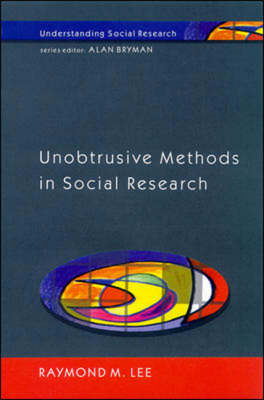Understanding Social Research
1 total work
This volume aims to provide an up-to-date discussion of the role of unobtrusive methods in social research, in a comprehensive and clearly written style. It explores how unobtrusive methods can be generated, looks at unobtrusive methods and the Internet, and examines some of the wider ethical issues raised by the use of these methods in social research. Social researchers often collect "self-report" data based on interviews and surveys. There are major problems associated with the "reactive" nature of these data, for example, people are not always honest when asked to supply information on "sensitive issues". Unobtrusive methods produce data that are not elicited in this way. Instead data are "found" in the word, captured from various forms of observation or are retrieved from data repositories of various kinds. The production of unobtrusive methods requires considerable ingenuity on the part of the researcher and this book explores the methods involved and how they are produced. There are also ethical problems associated with unobtrusive methods which are discussed in the book. The Internet promises to be a major source of unobtrusive data and so is discussed in some detail.
